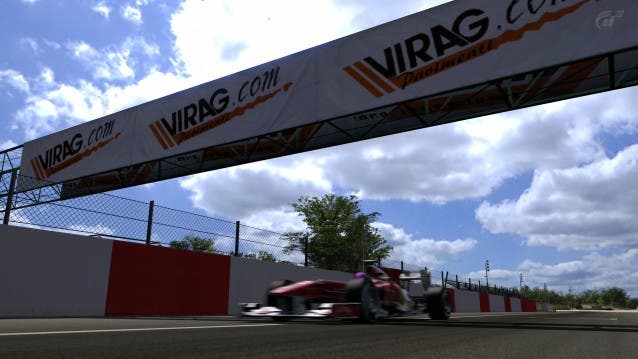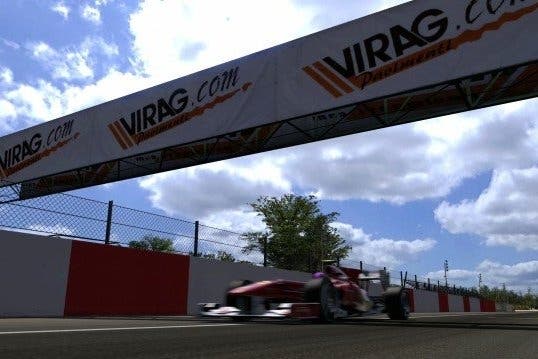Gran Turismo leaves Italian flooring company in the dust
Floored logic.
A US court has thrown out a lawsuit that claimed Gran Turismo infringed the trademark of an Italian flooring company.
Virag, based near Milan, manufactures fancy floors, but it also sponsors car races. And so, its name and logo have appeared in PlayStation 3 racing games Gran Turismo 5 and Gran Turismo 6, specifically on a bridge over the Rally of Monza track.

Virag sued Sony Computer Entertainment in California in 2014, but in August this year a judge threw out most of the claims, saying the First Amendment status of video games as an expressive medium qualified it for protection.
Virag sued Sony for "violating its common law right of publicity" and its trademark rights, arguing Gran Turismo, as "the real driving simulator", was not an "expressive medium" because the games "merely allow a player to 'drive' a simulated car around preset race tracks".
As video game lawyer Jas Purewal pointed out on Twitter, the ruling is important because it confirms racing games, like other types of games, enjoy First Amendment protection.
It may be a different case in Europe, however.
One of Virag's owners, Mirco Virag, who has driven a Virag-sponsored car in the Rally of Monza a number of times, also sued Sony for violating his common law right of publicity. His claim, that his identity is connected to the Virag mark, survives. Apparently a human being's right of publicity can "be brought into play" if a name used as a mark also identifies that human being.
Meanwhile, as part of the lawsuit court documents, Gran Turismo sales figures were disclosed (thanks, GT Planet).
Over 70m copies of the Gran Turismo games have been sold, the documents say. Gran Turismo 5, released in December 2010, has sold an impressive 10.89m copies to date.
Gran Turismo 6, which came out on the then ageing PlayStation 3 in December 2013, sold 2.37m copies - a considerably lower figure.
Developer Polyphony Digital is rumoured to be working on Gran Turismo 7 for PlayStation 4.

